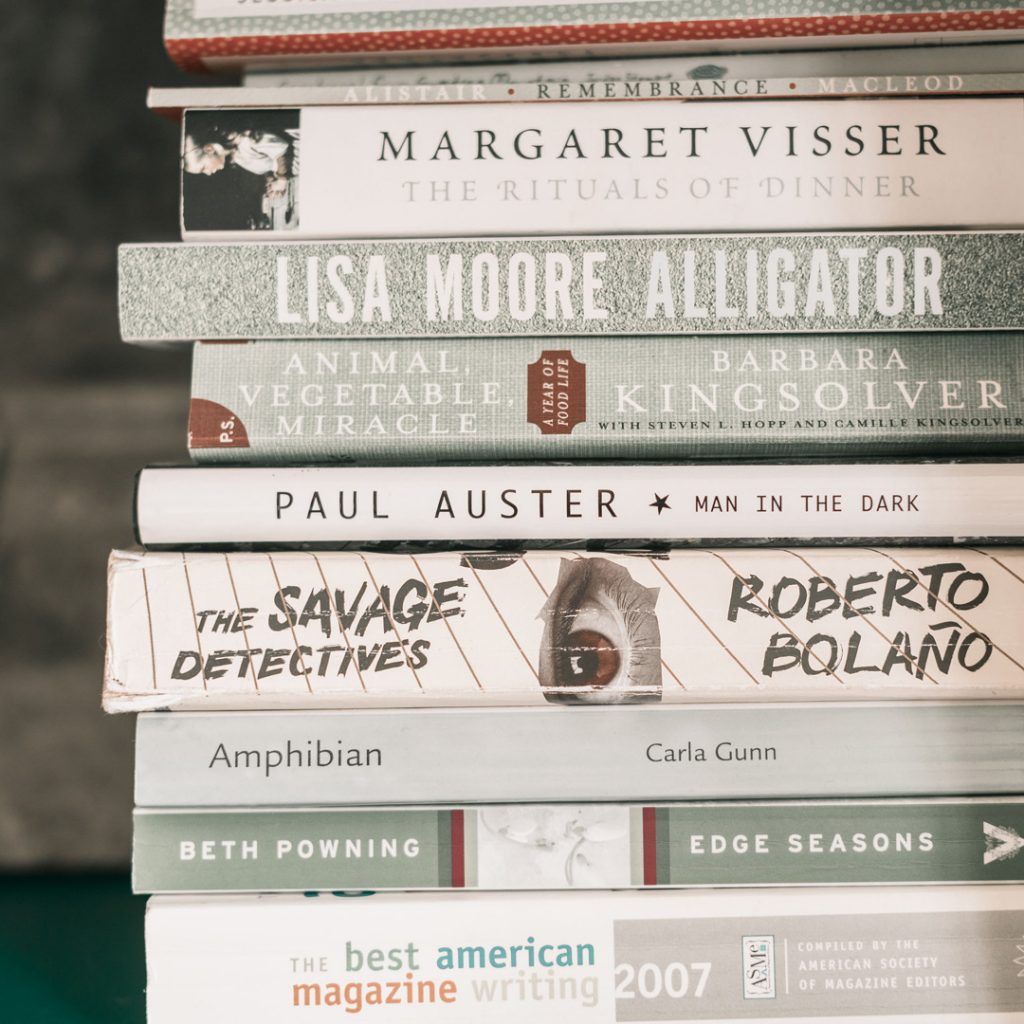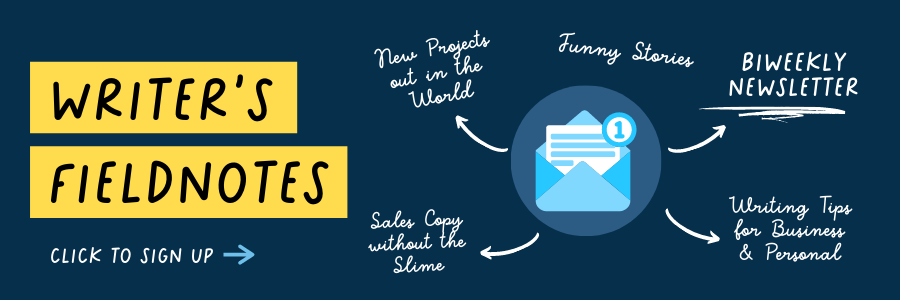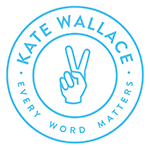I spent the first week of August this year on Prince Edward Island with my family. We rented a cute little cabin near bike paths, a legendary fish and chips stand, the bay and the beach.
And this wasn’t the usual ‘vacation’ where I’d sneak into my inbox between beach trips and campfires. No, this was a laptop lockdown. Even when the temptation to check-in online struck, the ‘no wifi connection found’ kept me from reaching for work instead of relaxing.
And that kind of made it even better.
I was able to unplug completely—and only mildly under duress—which allowed me to connect with my creativity using simple, low-tech means.
I’m not saying it was easy. It’s hard to break the tech habit when you’re trying to write. But it’s crucial to disconnect from your devices occasionally to tap into your internal dialogue.
The end of summer is prime-time for a little digital detox around your writing. If you’re at a campground or cabin with no modern amenities, don’t fight it. Embrace the tech-free interlude as a digital-free summer camp for your creativity.
Here are three low-tech ways to up your writing game from the wild.
The Notebook.
If you’re a regular reader, you’ve heard me say this before: you need a dedicated place to capture your thoughts.
While your phone’s note-taking apps are handy, why not go old-school and get an actual, analogue notebook?
Not only do they make for a fantastic repository for those wisps of ideas that you’ll eventually turn into posts, content and captions—but you also don’t have the distraction of social media or the constraints of the software. Your notebook is your playground.
As a notebook junkie, there’s nothing like the freedom of a blank page, and all that space to jot, doodle, sketch and brainstorm.
Lots of research shows that writing by hand activates creative parts of the brain and stimulates memory and motor skills in ways that typing doesn’t. Plus, forming letters and words lights up our brain’s right hemisphere—its artistic, pictorial side.

Pick up a book.
If I had one piece of advice for improving your writing, it would be to pick up a book. Reading is inherent in learning to write. Attempting to become a better writer without it is like a chef trying to learn to cook without tasting new and different food.
So whether your projects include a blog, content for your business or a personal creative project, there’s nothing as instructive as someone else’s writing. You pick up all the ways they get the job done. Vocabulary, word choice, structure, pacing—it’s all there to observe and absorb. You internalize the work you read, and it becomes an unconscious source when it’s your turn to write.
And you don’t need to crack the spine of War and Peace for it to matter. No Tolstoy by the pool required. Reading bad writing is also valuable, both for its implicit instruction on what not to do and as a source of confidence: you can do better! And, hey, who doesn’t love a trashy beach read?
And then there’s the double whammy of reading about writing, where the subject matter and the form both teach you things. A couple of my favourites:
- On Writing: A Memoir of the Craft, by Steven King: “Read a lot, write a lot,” King advises. He should know. Even if writing for work or pleasure is a side project or small part of your job, this memoir of the writing life form one of America’s top authors is as entertaining as it is informative.
- Wired For Story, by Lisa Cron: If you, like me, could nerd out all day on storytelling and why it’s so powerful, you’ll love this exploration of the evolution and psychology of stories. We are hard-wired for story. This book vividly explains how stories work on our brains and how to craft and harness them.

Go for a Walk.
Walking is one of the most amazing low-fi technologies. It’s transportation and exercise. It’s a vehicle for expanding the confines of our world and a natural antidepressant. And it’s also jet fuel for creativity, spurring the writing process.
There’s a long tradition of writers going for long walks. Research shows that regular walks increase activity in the hippocampus, which is related to motivation, emotion, learning, and memory.
A study at Stanford University linked increases in creative thinking with walking. Best of all? The effects on your imagination and energy continue once your walk is over.
“Most writing is done away from the typewriter, away from the desk,” Henry Miller said. “I’d say it occurs in the quiet, silent moments, while you’re walking or shaving or playing a game or whatever.”
So walk. It’s good for your body, your brain, your mood and your writing.
At the end of my week away, I found myself brimming with new ideas for my clients, notes and ideas for my own business and ideas for how to help you learn more about writing.
There has never been a more critical time to hone your writing skills as more businesses move into the online space, so making sure you have a notebook, reading material, and plenty of time to take a walk will do wonders for your business as the year comes to a close.



